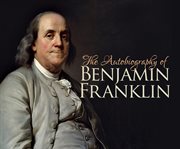Review by Booklist Review
Civic-minded founder Benjamin Franklin perpetuated his values in a will that contained an unusual provision. He donated 1,000 pounds (equivalent to $266,000 today) each to Boston and Philadelphia, to be loaned to tradesmen to start their careers. Franklin stipulated that this should continue for 200 years, after which his gift would be liquidated for public works. Meyer, upon discovering this, resolved to follow the money, and he does so from 1791 to 1991. Boston began by loaning its entire bequest the first year. Philadelphia violated Franklin's bequest from the get-go. But in 1827, Boston gave much of Franklin's money to an insurance company and ceased loans to would-be tradesmen. When this was revealed in 1889, an investigation provoked the all-American reaction to contested wills--litigation. Franklin's descendants wanted his money back; they lost. Over the next century, Boston again adhered to Franklin's will, building a trades school, but then veered off course. Throughout this narrative of the checkered conformance to Franklin's intentions, Meyer wryly injects apt adages from Franklin's Poor Richard's Almanack into his own lively prose. A unique and entrancing investigation.
From Booklist, Copyright (c) American Library Association. Used with permission.
Review by Publisher's Weekly Review
Historian Meyer (Last Days of Old Beijing) takes an engrossing look at a lesser-known aspect of Benjamin Franklin's legacy. Shortly before his death in 1790, Franklin added a codicil to his will allocating £1,000 (equivalent to $133,000 today) each to Boston and Philadelphia, requiring that the money be used to distribute low-interest loans to young, married tradesmen. Drawing on a plan devised by a French mathematician, Franklin projected that with compound interest and careful management, the funds would grow to more than $17 million each by the bicentennial of his death, at which point they were to be "cashed out and spent on civic improvements." Meyer incorporates intriguing tidbits from Franklin's biography into the history of the funds, which grew at different rates in Boston and Philadelphia. (The entirety of the Boston fund went to the Benjamin Franklin Institute of Technology in 1994; the Philadelphia Foundation continues to manage its Franklin Trust Funds.) In the 20th century, Boston trustees voted to include medical students in the loan scheme, while Pennsylvania activist Walter Lyon lobbied for allocations toward environmental conservation. Meyer praises Franklin's foresight and belief in skilled labor and laments that today, apprenticeship programs lag far behind four-year universities. Enriched by vivid character sketches and lucid explanations of financial and policy matters, this is an entertaining examination of how a wise investment pays off. Agent: Georges Borchardt, Georges Borchardt Inc. (Apr.)
(c) Copyright PWxyz, LLC. All rights reserved
Review by Kirkus Book Review
A portrait of the great revolutionary leader as a working-class populist. Like the other Founding Fathers, writes historian Meyer, Benjamin Franklin was morally compromised: He pledged himself to the cause of liberty, yet he kept slaves throughout his life. That fact has been long known but little publicized. So, too, the subject of this book, namely a fund that Franklin established toward the end of his life that would endow the cities of Philadelphia, where Franklin made his fortune, and Boston, where he studied, with funds that would mature over the centuries, meanwhile providing small loans to working-class people to be repaid with interest over 10-year periods. "Although the term would not be coined for another two centuries," writes Meyer, "Franklin's ethical lending scheme can be seen as a forerunner of microfinance." In addition, thanks to the miracle of compound interest, a portion of the funds--which amounted to a bit under $4,500 in the money of the time but which, properly managed, should have yielded billions today--were also to be distributed to the cities for public works improvements. Franklin made numerous assumptions that didn't hold, among them that the funds would be competently administered by civic-minded volunteers and repaid on time. Neither happened thanks to various financial crises in the days before central banking. In 1828, Meyer writes, "Philadelphia's auditor--making a soft approximation--penciled in a balance of $9,919.50, a calamitous 43 percent slide in only four years." What should have been billions amounted to just a few million two centuries later, and the inequality that Franklin meant to combat by helping workers build businesses and trade education has mounted. Still, as Meyer notes, despite mismanagement and neglect, that there's any money left at all should count as a plus, as well as the fact that Franklin's "example of civic virtue has been carried forward, as he had hoped, for two hundred years." Meyer's book sheds fascinating light on an icon who has been reduced to a symbol. Copyright (c) Kirkus Reviews, used with permission.
Copyright (c) Kirkus Reviews, used with permission.

